
Discover the Hidden Gem of Ureka
Nestled on the island of Bioko in Equatorial Guinea, Ureka is a true hidden gem waiting to be discovered by adventurers and nature enthusiasts alike. This remote village is renowned for its breathtaking landscapes, lush rainforests, and stunning waterfalls. As one of the wettest places on Earth, Ureka's environment is teeming with diverse flora and fauna, making it a paradise for ecotourism and wildlife observation. Ureka is also famous for its pristine beaches, which provide a perfect escape for those looking to unwind and soak up the sun. The beaches here are often deserted, offering a sense of tranquility and solitude that is hard to find elsewhere. The crystal-clear waters are ideal for swimming and snorkeling, allowing visitors to explore the vibrant marine life just off the coast. For those interested in local culture, Ureka offers a unique glimpse into the traditional way of life of the Bubi people, the indigenous inhabitants of Bioko Island. Visitors can engage with the local community, learn about their customs, and even participate in traditional ceremonies. The warmth and hospitality of the people of Ureka make it a memorable and enriching experience for any traveler.
Local tips in Ureka
- Visit during the dry season (November to March) for more accessible trails and better weather conditions.
- Pack waterproof gear and insect repellent, as Ureka is known for its heavy rainfall and vibrant wildlife.
- Hire a local guide to navigate the rainforests and waterfalls safely while learning about the unique ecosystem.
- Respect local customs and traditions when interacting with the Bubi community.
- Carry enough cash, as there are limited ATM and banking facilities in Ureka.
Discover the Hidden Gem of Ureka
Nestled on the island of Bioko in Equatorial Guinea, Ureka is a true hidden gem waiting to be discovered by adventurers and nature enthusiasts alike. This remote village is renowned for its breathtaking landscapes, lush rainforests, and stunning waterfalls. As one of the wettest places on Earth, Ureka's environment is teeming with diverse flora and fauna, making it a paradise for ecotourism and wildlife observation. Ureka is also famous for its pristine beaches, which provide a perfect escape for those looking to unwind and soak up the sun. The beaches here are often deserted, offering a sense of tranquility and solitude that is hard to find elsewhere. The crystal-clear waters are ideal for swimming and snorkeling, allowing visitors to explore the vibrant marine life just off the coast. For those interested in local culture, Ureka offers a unique glimpse into the traditional way of life of the Bubi people, the indigenous inhabitants of Bioko Island. Visitors can engage with the local community, learn about their customs, and even participate in traditional ceremonies. The warmth and hospitality of the people of Ureka make it a memorable and enriching experience for any traveler.
When is the best time to go to Ureka?
Iconic landmarks you can’t miss
St. Elizabeth’s Cathedral
Discover the breathtaking beauty and rich cultural heritage of St. Elizabeth’s Cathedral in Malabo, a must-visit tourist attraction in Equatorial Guinea.
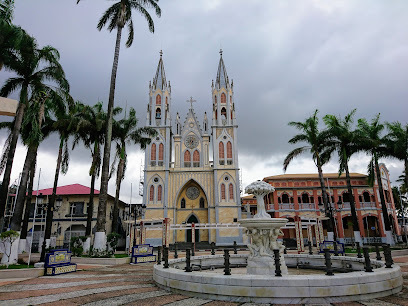
Torre de la Libertad
Experience the vibrant fusion of dining and nightlife at Torre de la Libertad in Bata, Equatorial Guinea, where local flavor meets lively entertainment.
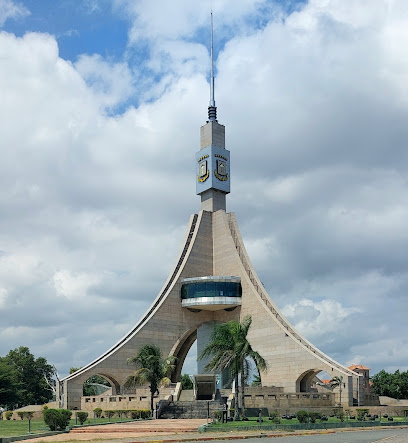
Parque Nacional del Monte Alén
Discover the breathtaking beauty and diverse wildlife of Parque Nacional del Monte Alén, a hidden gem in Equatorial Guinea's lush rainforest.
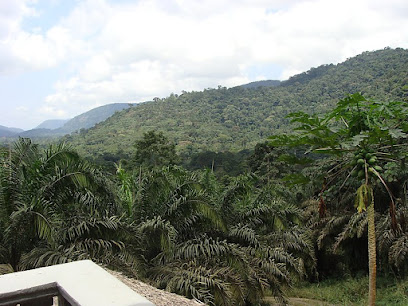
Plaza de Guinea Équatoriale
Discover the charm of Plaza de Guinea Équatoriale, a cultural oasis in Malabo, where local life and stunning scenery come together for an unforgettable experience.
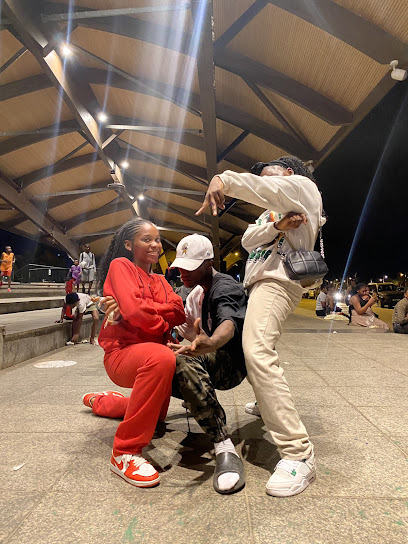
Restaurante Ureka Place
Savor authentic Equatorial Guinean cuisine at Restaurante Ureka Place, a hidden culinary gem in Malabo offering a unique dining experience.
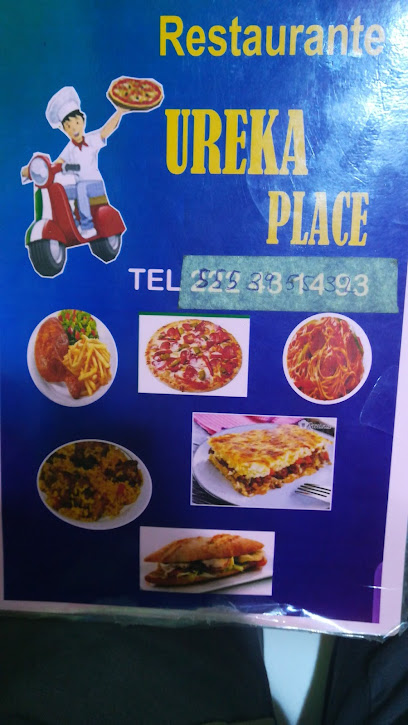
Reserva científica de la Caldera de Luba
Experience the breathtaking natural beauty and diverse wildlife at Reserva Científica de la Caldera de Luba, a must-visit nature preserve in Equatorial Guinea.

Unmissable attractions to see
Malabo Stadium
Explore the vibrant atmosphere at Malabo Stadium, a cultural and sporting hub in Equatorial Guinea's capital.
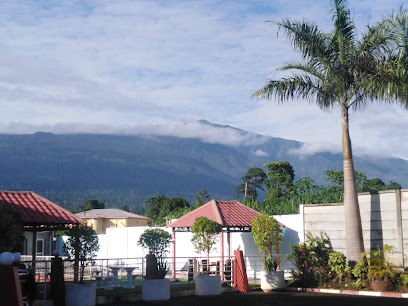
Pico Basilé
Explore the breathtaking heights of Pico Basilé, Equatorial Guinea's highest peak, and immerse yourself in its stunning natural beauty and rich biodiversity.

Reserva Natural de Río Campo
Explore the serene landscapes and rich biodiversity of Reserva Natural de Río Campo, a nature preserve in Equatorial Guinea perfect for adventure and relaxation.

Iglesia de San Fernando
Discover the architectural beauty and serene atmosphere of Iglesia de San Fernando, a captivating Catholic church in Malabo, Equatorial Guinea.

Pico Basilé National Park
Discover the breathtaking landscapes and rich biodiversity of Pico Basilé National Park in the heart of Equatorial Guinea.
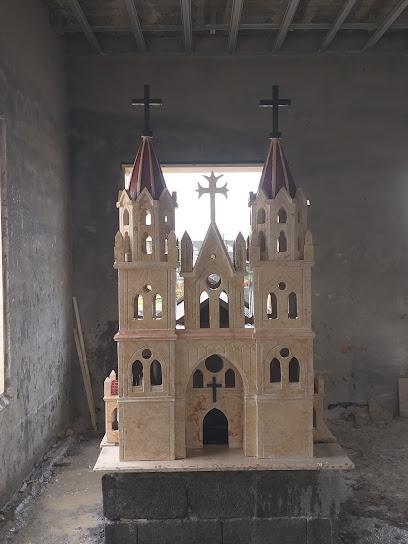
Essential places to dine
La Luna
Experience exquisite fine dining at La Luna in Malabo – where local flavors meet international cuisine for an unforgettable culinary journey.
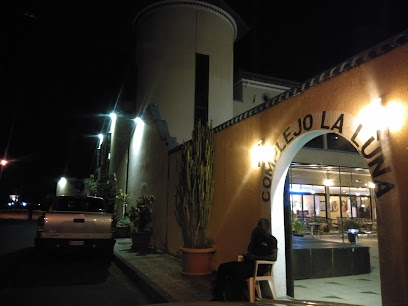
Colinas Hotel
Experience fine dining at Colinas Hotel in Malabo - where luxury meets local flavor amidst stunning surroundings.

Bidji Binia
Discover Bidji Binia in Malabo – where authentic Italian pizza meets local charm for an unforgettable dining experience.
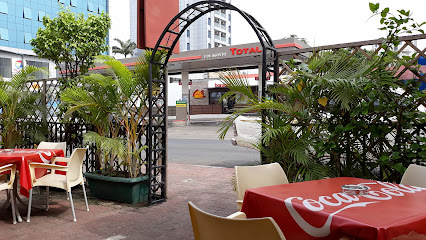
Aviator Pub and Café
Experience vibrant nightlife at Aviator Pub and Café in Malabo—where delicious food meets live music and fun-filled karaoke nights.
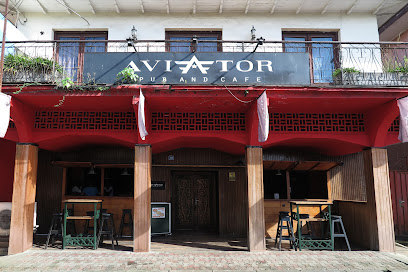
L'Atelier
Experience exquisite dining at L'Atelier in Malabo – where local flavors meet contemporary culinary art.
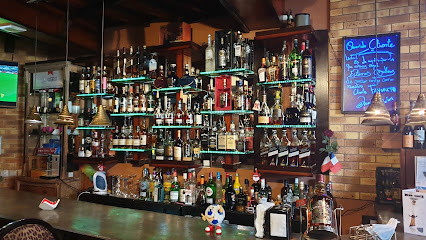
Pizza Place
Experience the taste of Italy in Malabo at Pizza Place – where fresh ingredients meet authentic flavors in every slice.
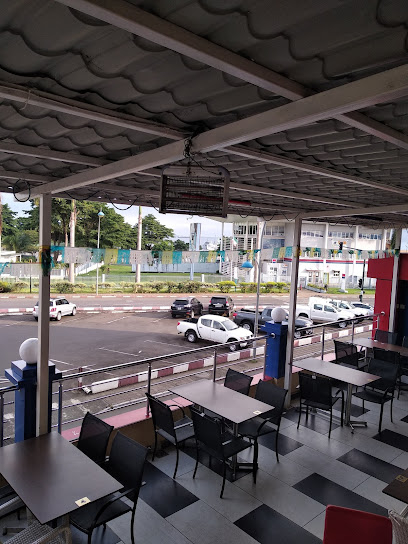
Restaurante Imagine
Experience the rich flavors of Equatorial Guinea at Restaurante Imagine - where culinary art meets vibrant culture.
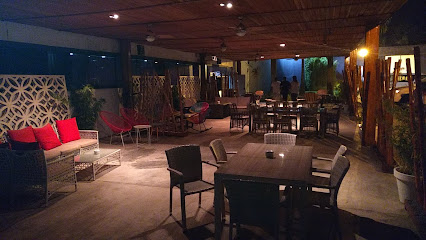
El Rancho Restaurant
Experience authentic Equatorial Guinean cuisine at El Rancho Restaurant in Malabo - where every meal tells a story.
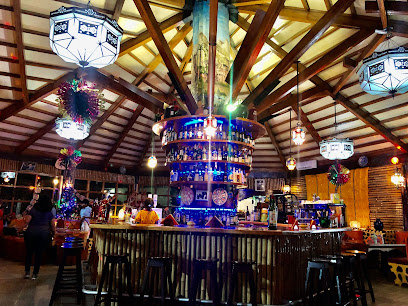
Restaurante Kalytero
Experience authentic Mediterranean flavors at Restaurante Kalytero in Malabo – where every meal is a celebration of taste and culture.
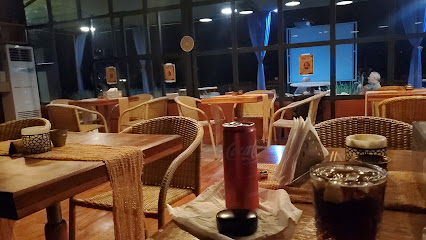
Lucy - Ethiopian Restaurant
Experience authentic Ethiopian cuisine at Lucy - Ethiopian Restaurant in Malabo; indulge in rich flavors and cultural ambiance.
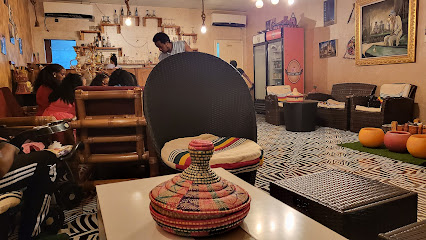
Restaurante Babel
Discover exquisite Equatorial Guinean cuisine at Restaurante Babel in Malabo – where every dish tells a story.
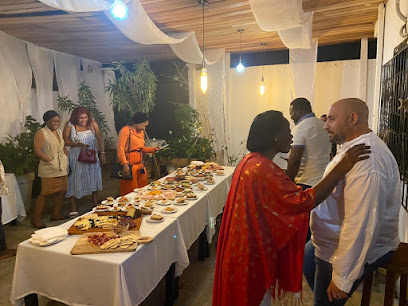
Cafe Kristania
Experience authentic Equatorial Guinean cuisine at Café Kristania in Malabo – where local flavors meet warm hospitality.
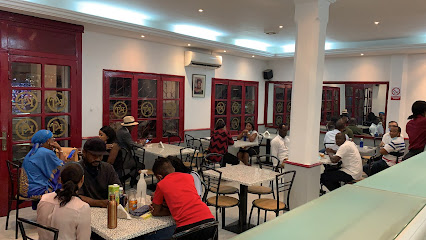
Etula Restaurant
Discover authentic Equatorial Guinean cuisine at Etula Restaurant in Malabo - where tradition meets taste in every dish.
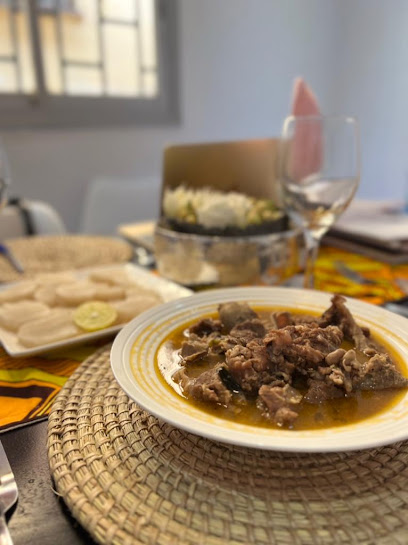
Restaurante Ndivo Junior
Experience authentic Creole cuisine at Restaurante Ndivo Junior in Bata - a culinary delight celebrating Equatorial Guinea's rich flavors.
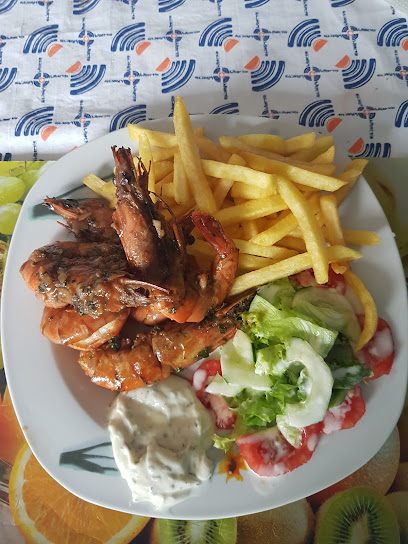
Ureka Falls Bar&Grill
Discover exquisite flavors at Ureka Falls Bar & Grill in Malabo – where culinary excellence meets stunning natural views.
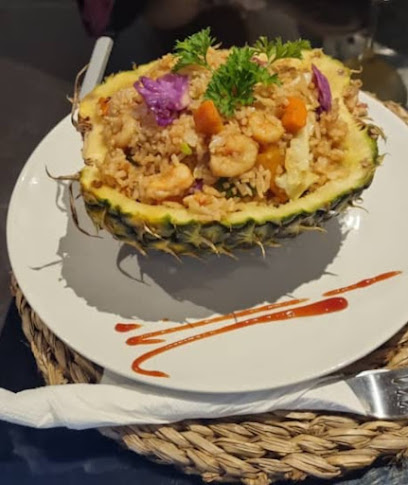
Markets, malls and hidden boutiques
SEMU Mercado
Experience the vibrant culture and flavors of Malabo at SEMU Mercado, the heart of local trade and community in Equatorial Guinea.
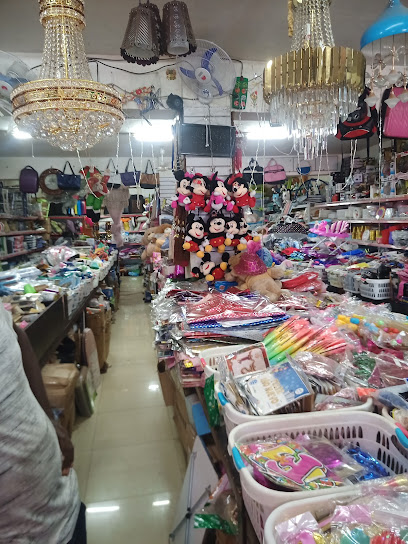
kim mall istanbul en malabo
Explore Kim Mall in Malabo for a unique shopping experience featuring local and international clothing styles in a vibrant atmosphere.
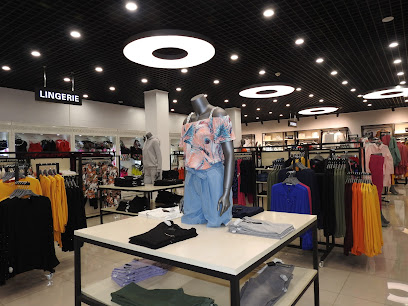
Ryesa
Discover Ryesa in Malabo, your one-stop hardware store for all DIY and home improvement needs in Equatorial Guinea.
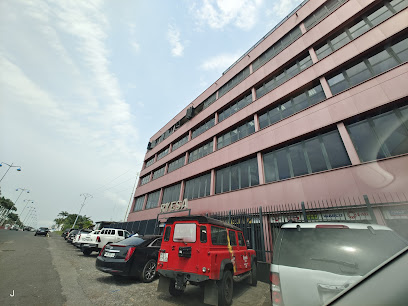
Guinaco
Discover the flavors of Equatorial Guinea at Guinaco, your go-to grocery store in Malabo for local and international delights.
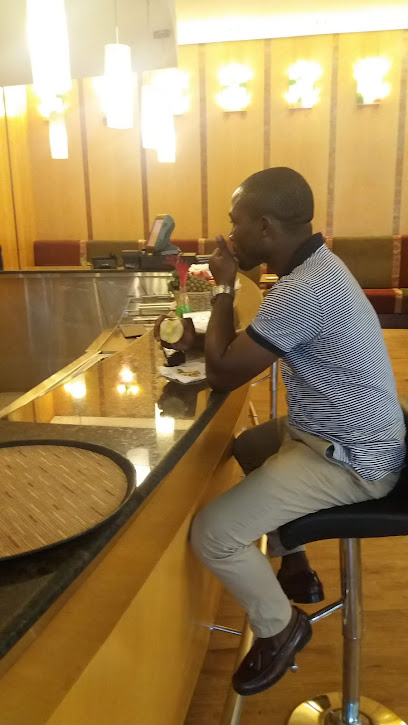
Ventage Comercial
Discover unique home goods and authentic souvenirs at Ventage Comercial in Malabo, a must-visit store for every traveler seeking local treasures.
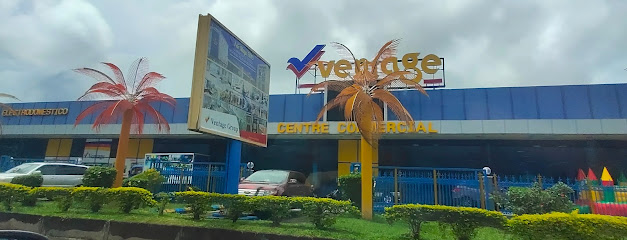
Tienda Nono
Discover the best of local fashion at Tienda Nono, Malabo's premier clothing store offering stylish apparel and attentive service.

gavarishop
Discover the vibrant local culture with a unique shopping experience at Gavarishop in Malabo, Equatorial Guinea.

Tienda NÚRIA
Explore Tienda NÚRIA for unique home goods and local crafts in Malabo, a perfect blend of culture and craftsmanship from Equatorial Guinea.
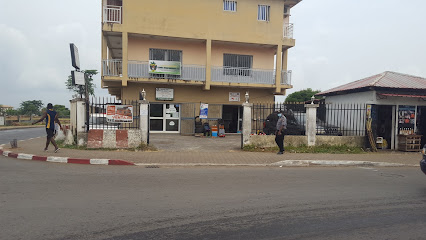
Dulces de Guinea
Discover a cookie paradise at Dulces de Guinea, where every bite is a celebration of Equatorial Guinea's rich flavors and culinary traditions.
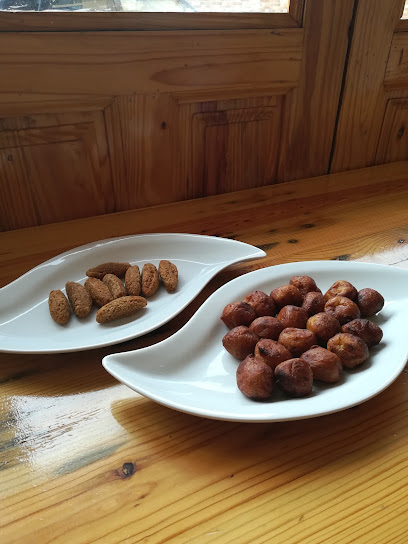
TIENDA EN LÍNEA LA CASA KO
Explore Tienda en Línea La Casa KO in Equatorial Guinea for elegant formal wear that complements every occasion with style and sophistication.

CADOSBE SHIP CHANDLER EQUATORIAL GUINEA S.L
Experience unparalleled convenience at CADOSBE Ship Chandler, your trusted stop for essential goods and nautical supplies in Malabo, Equatorial Guinea.

CERAMICO
Explore CERAMICO in Malabo for a unique selection of local home goods and crafts that capture the essence of Equatorial Guinea's vibrant culture.
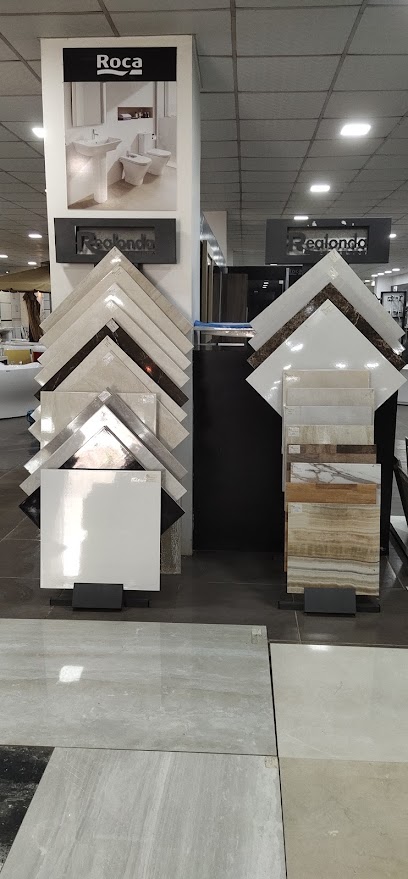
LONGRICH AVEC TARAM
Explore a diverse range of health and beauty products at LONGRICH AVEC TARAM in Malabo - your essential stop for wellness in Equatorial Guinea.
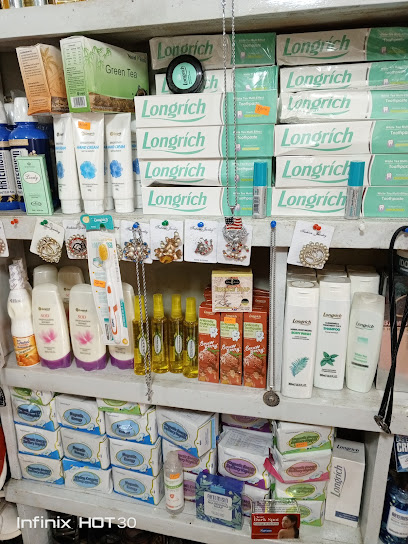
FBGESOLUCIONES
Explore FBGESOLUCIONES in Malabo for an extensive selection of home goods that blend modern style with traditional craftsmanship, perfect for every taste.
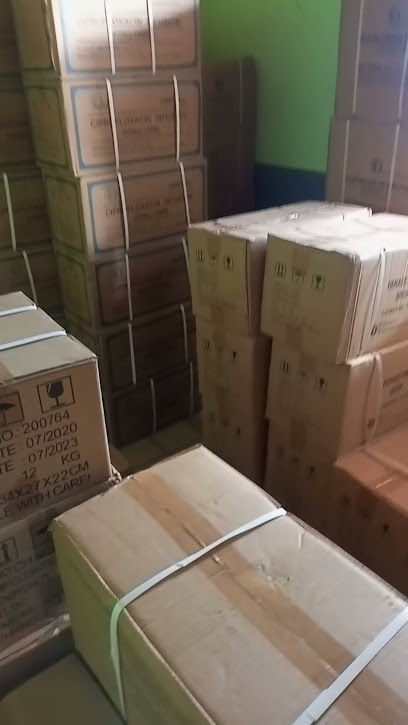
Happyboxbykara
Explore Happyboxbykara in Malabo for unique gifts and local crafts that capture the essence of Equatorial Guinea's rich culture and heritage.
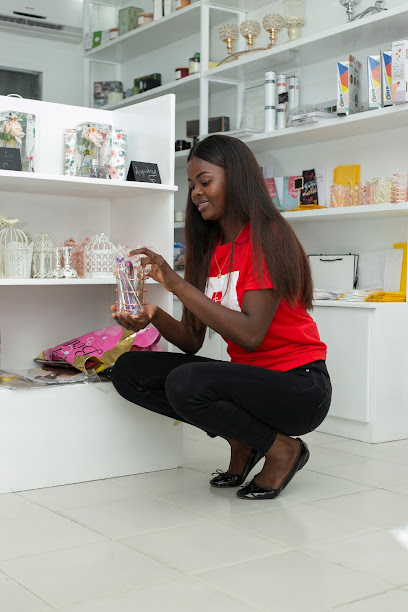
Essential bars & hidden hideouts
Aviator Pub and Café
Discover the vibrant Aviator Pub and Café in Malabo, where gastropub dining meets live music and a welcoming atmosphere for every traveler.
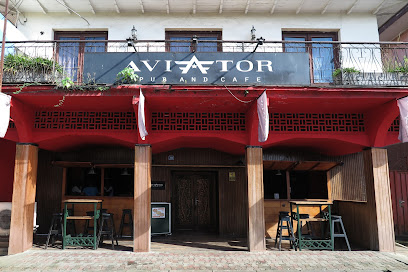
Cacahual MEGPL Club House
Experience exquisite coastal dining at Cacahual MEGPL Club House in Malabo, where local flavors meet stunning ocean views for an unforgettable meal.
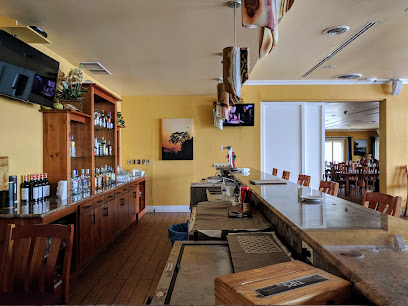
El Hard Rock Resto and Pub
Discover the lively El Hard Rock Resto and Pub in Malabo, where delicious food meets vibrant music and a welcoming atmosphere.
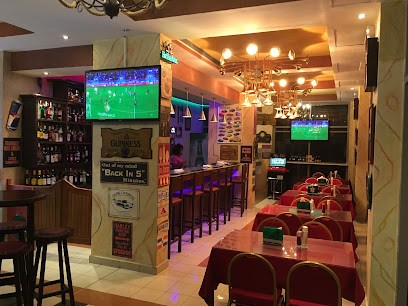
Olympus Skybar
Experience breathtaking views and exquisite international cuisine at Olympus Skybar in Malabo, Equatorial Guinea.
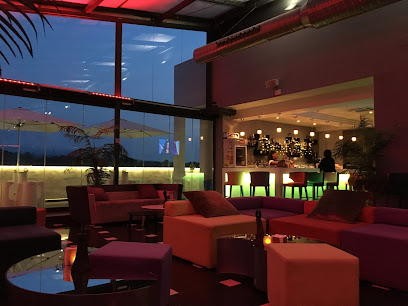
Café Malabo Sampaka
Discover the vibrant atmosphere and delicious local flavors at Café Malabo Sampaka in Zaragoza de Sampoca, Equatorial Guinea.
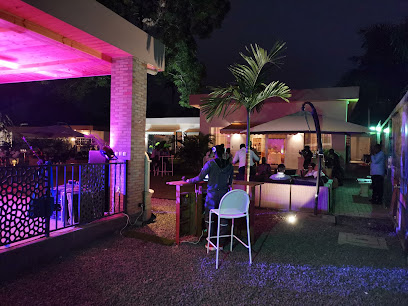
SAKOGE SL
Experience the vibrant atmosphere and local flavors at SAKOGE SL, a popular bar in Malabo, Equatorial Guinea.
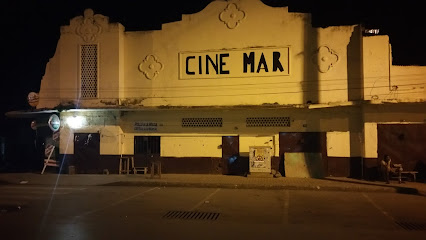
IMANI LOUNGE MALABO
Discover the lively ambiance and exquisite flavors at Imani Lounge Malabo, the perfect spot for relaxation and cultural immersion in Equatorial Guinea.
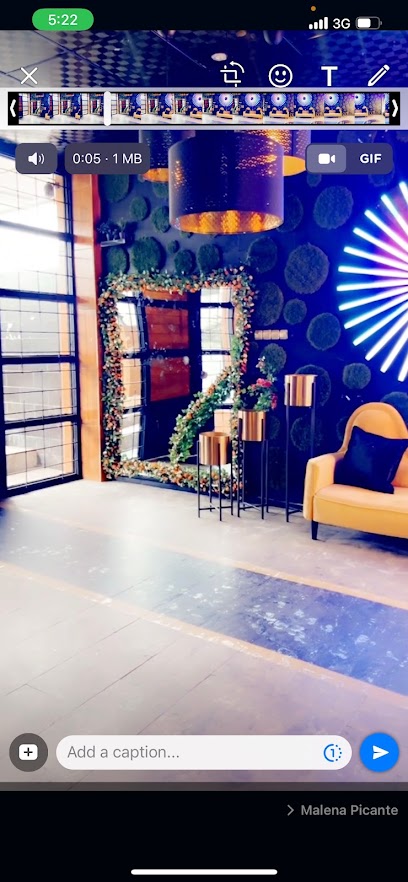
Bar Baney
Experience the vibrant culture and refreshing drinks at Bar Baney in Malabo, a must-visit bar and informal education center in Equatorial Guinea.
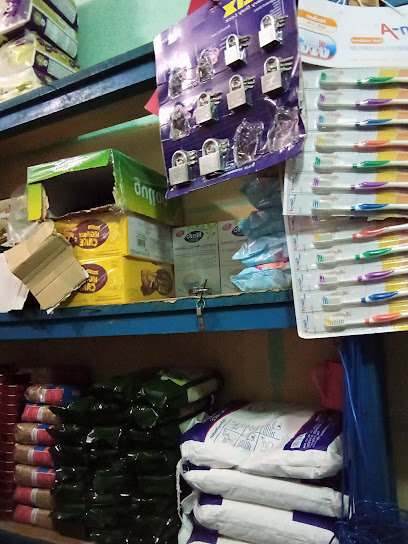
Bar Restaurante Entre Amigos
Discover the culinary delights of Malabo at Bar Restaurante Entre Amigos, where local flavors meet a welcoming atmosphere in Equatorial Guinea.
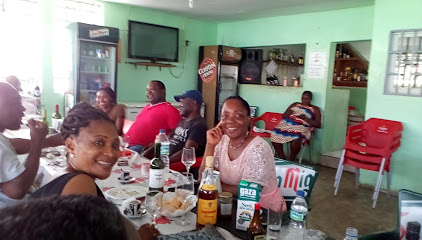
Garden Lounge
Discover the Garden Lounge in Malabo: A vibrant oasis for relaxation, drinks, and live music in Equatorial Guinea.
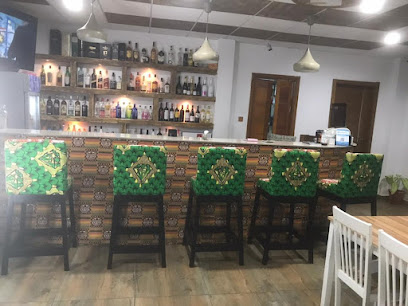
Ureka Falls Bar&Grill
Discover the flavors of Equatorial Guinea at Ureka Falls Bar & Grill, where delicious cuisine meets breathtaking views in the heart of Malabo.
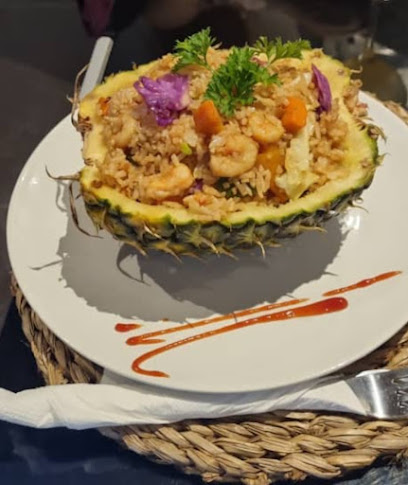
Hookah Paradise
Discover Hookah Paradise in Malabo, where exotic cocktails meet a vibrant atmosphere for an unforgettable night out.
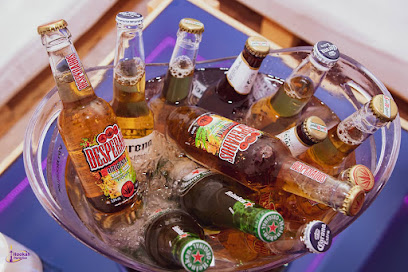
CAYUCO LOUNGE BAR
Discover the lively atmosphere and exquisite cocktails at Cayuco Lounge Bar, the heart of nightlife in Riaba, Equatorial Guinea.
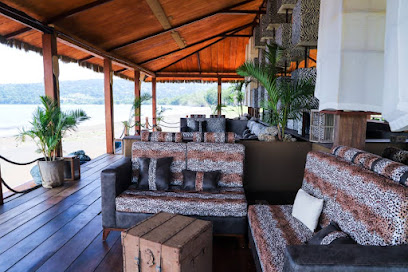
FACCIA LUNA LOUNGE
Discover the vibrant atmosphere of Faccia Luna Lounge in Malabo, where refreshing drinks and local culture create unforgettable experiences.
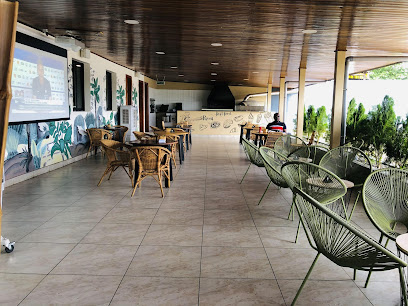
Local Phrases about Ureka
-
- HelloMbolo
[m-boh-loh] - GoodbyeAdios
[ah-dyohs] - YesEne
[eh-neh] - NoOe
[oh-eh] - Please/You're welcomeMba'e
[m-bah-eh] - Thank youMesi
[meh-see] - Excuse me/SorryEne nangui
[eh-neh nahn-gee] - How are you?Mendeme?
[men-deh-meh] - Fine. And you?Mendeme. Ene?
[men-deh-meh. eh-neh] - Do you speak English?Ondo ebele i Ingles?
[ohn-doh eh-beh-leh ee een-glehs] - I don't understandAyo eyo
[ah-yoh ay-yoh]
- HelloMbolo
-
- I'd like to see the menu, pleaseNkomo nde nchui, mba'e
[n-koh-moh n-deh n-chwee, m-bah-eh] - I don't eat meatAyo nde enjume
[ah-yoh n-deh ehn-joo-meh] - Cheers!Mba'e
[m-bah-eh] - I would like to pay, pleaseNkomo nde nhara, mba'e
[n-koh-moh n-deh n-hah-rah, m-bah-eh]
- I'd like to see the menu, pleaseNkomo nde nchui, mba'e
-
- Help!Ayuuda!
[ah-yoo-dah] - Go away!Onde nchui!
[ohn-deh n-chwee] - Call the Police!Ondo nguiri Nkala!
[ohn-doh n-gwee-ree n-kah-lah] - Call a doctor!Ondo nguiri Mediku!
[ohn-doh n-gwee-ree meh-dee-koo] - I'm lostAyo nde nkutu
[ah-yoh n-deh n-koo-too] - I'm illAyo nde ndzoku
[ah-yoh n-deh ndzoh-koo]
- Help!Ayuuda!
-
- I'd like to buy...Nkomo nde nvehu...
[n-koh-moh n-deh n-veh-hoo] - I'm just lookingAyo nde nchui
[ah-yoh n-deh n-chwee] - How much is it?Ijue nde?
[ee-hweh n-deh] - That's too expensiveAyo nde nhara ondo
[ah-yoh n-deh n-hah-rah ohn-doh] - Can you lower the price?Ondo nde nchumia nhara?
[ohn-doh n-deh n-choo-mee-ah n-hah-rah]
- I'd like to buy...Nkomo nde nvehu...
-
- What time is it?Ijue nde?
[ee-hweh n-deh] - It's one o'clockNkomo nde ndzame
[n-koh-moh n-deh ndzah-meh] - Half past (10)Nkomo nde ndzame na nkwe
[n-koh-moh n-deh ndzah-meh nah n-kweh] - MorningNkuru
[n-koo-roo] - AfternoonNkwe
[n-kweh] - EveningNkuru nkwe
[n-koo-roo n-kweh] - YesterdayNdumame
[ndoo-mah-meh] - TodayNzuame
[n-zoo-ah-meh] - TomorrowNzome
[n-zoh-meh] - 1Nkiri
[n-kee-ree] - 2Ntungo
[n-too-ngo] - 3Ntatu
[n-tah-too] - 4Nnche
[nn-cheh] - 5Nambe
[nahm-beh] - 6Nnandu
[nn-ahn-doo] - 7Nnandu na nkiri
[nn-ahn-doo nah n-kee-ree] - 8Nnandu na ntungo
[nn-ahn-doo nah n-too-ngo] - 9Nnandu na ntatu
[nn-ahn-doo nah n-tah-too] - 10Nnandu na nnche
[nn-ahn-doo nah nn-cheh]
- What time is it?Ijue nde?
-
- Where's a/the...?Ijue a...
[ee-hweh ah...] - What's the address?Ijue a ndumame?
[ee-hweh ah ndoo-mah-meh] - Can you show me (on the map)?Ondo nde ne seka (na mape)?
[ohn-doh n-deh neh seh-kah (nah mah-peh)] - When's the next (bus)?Ijue a ndzame nde?
[ee-hweh ah ndzah-meh n-deh] - A ticket (to ....)Nkomo nde nchutu (k'i ....)
[n-koh-moh n-deh n-choo-too (kee ....)]
- Where's a/the...?Ijue a...
History of Ureka
-
Ureka, located on the southern coast of Bioko Island in Equatorial Guinea, has a rich history that dates back to ancient times. The area was originally inhabited by the Bubi people, who are believed to have migrated from the mainland of Africa around 500 B.C. The Bubi people established small, self-sustaining communities and were known for their complex social structures and animistic religious beliefs. Artifacts such as pottery and stone tools have been unearthed in the region, shedding light on their early way of life.
-
The colonial history of Ureka is marked by the arrival of European explorers in the 15th century. Portuguese explorers were the first Europeans to reach the island, naming it 'Formosa'. However, it was the Spanish who would later claim the territory in the 18th century, renaming the island to Fernando Po in honor of the Portuguese explorer Fernando Pó. The Spanish established plantations and used the island as a penal colony, which significantly impacted the local Bubi population through forced labor and the introduction of new diseases.
-
In the late 19th and early 20th centuries, the economy of Ureka and the surrounding areas was heavily influenced by the cocoa boom. Spanish settlers and colonial authorities established large cocoa plantations, and Equatorial Guinea became one of the world's leading cocoa producers. This period saw an influx of migrant laborers from other parts of Africa, as well as tensions between the colonial authorities and the indigenous Bubi people, who resisted the exploitation and loss of their lands.
-
Equatorial Guinea gained independence from Spain on October 12, 1968. The post-independence period was tumultuous, characterized by political instability and economic challenges. Despite these issues, Ureka has remained a relatively isolated and tranquil part of Bioko Island, retaining much of its natural beauty and cultural heritage. Today, Ureka is known for its pristine beaches, lush rainforests, and unique wildlife, making it a popular destination for eco-tourism.
-
Ureka is not just significant for its natural beauty but also for its rich cultural traditions. The Bubi people, who still reside in the area, maintain their traditional practices and languages. Festivals, dances, and rituals are integral to their cultural identity. One of the most notable traditions is the 'Balélé' dance, performed during significant communal events and celebrations. These cultural practices offer a glimpse into the enduring heritage of the Bubi people and provide a unique cultural experience for visitors.
Ureka Essentials
-
Ureka is located on the southern coast of Bioko Island in Equatorial Guinea. The nearest airport is Malabo International Airport, approximately 60 kilometers away. From Malabo, you can hire a taxi or use a private shuttle service to reach Ureka. The journey typically takes around 2 hours by road, offering scenic views of the island's lush landscapes.
-
Transportation options in Ureka are limited due to its remote location. Most tourists opt for pre-arranged transport through their accommodations or tour operators. Local taxis can be hired for day trips, but it is advisable to negotiate the fare in advance. For exploring the village and its surroundings, walking is the most practical option.
-
The official currency in Equatorial Guinea is the Central African CFA franc (XAF). While credit cards are accepted in larger hotels and some restaurants in Malabo, Ureka is a cash-based economy. It is essential to carry sufficient cash, as there are no ATMs in Ureka. Ensure you withdraw enough money in Malabo before heading to Ureka.
-
Ureka is generally safe for tourists, but standard precautions should be taken. Avoid walking alone at night and always keep an eye on your belongings. Though Ureka has a low crime rate, it is advisable to stay vigilant and avoid displaying valuables in public. Stick to well-known paths and avoid venturing into unfamiliar areas without a guide.
-
In case of an emergency, contact local authorities by dialing 112. Medical facilities in Ureka are basic, so for serious medical issues, it is recommended to seek assistance in Malabo. Ensure you have comprehensive travel insurance that covers medical emergencies. For minor ailments, carry a basic first aid kit and any necessary medications.
-
Fashion: Do dress modestly. Lightweight, breathable clothing is recommended due to the tropical climate. Avoid wearing overly revealing clothing. Religion: Do respect local religious customs, especially during church visits. Remove your hat and speak softly inside religious sites. Public Transport: Do be courteous and patient when using local transport options. Don't expect western standards of punctuality. Greetings: Do greet locals with a friendly 'Buenos días' (Good morning) or 'Buenas tardes' (Good afternoon). A handshake is a common form of greeting. Eating & Drinking: Do try local dishes and accept food offerings graciously. Don't waste food, as it is considered disrespectful.
-
To experience Ureka like a local, spend time at the village markets where you can buy fresh produce and local crafts. Engage with the community, as they are often welcoming and eager to share their culture. Don't miss exploring the stunning waterfalls and pristine beaches in the area. Hiring a local guide can enhance your experience by offering insights into Ureka's natural and cultural heritage.
Nearby Cities to Ureka
-
Things To Do in Malabo
-
Things To Do in Limbe
-
Things To Do in Buea
-
Things To Do in Tiko
-
Things To Do in Kribi
-
Things To Do in Douala
-
Things To Do in Edea
-
Things To Do in Calabar
-
Things To Do in Uyo
-
Things To Do in Mbini
-
Things To Do in Santo Antonio
-
Things To Do in Nkongsamba
-
Things To Do in Port Harcourt
-
Things To Do in Ebolowa
-
Things To Do in Mamfe







